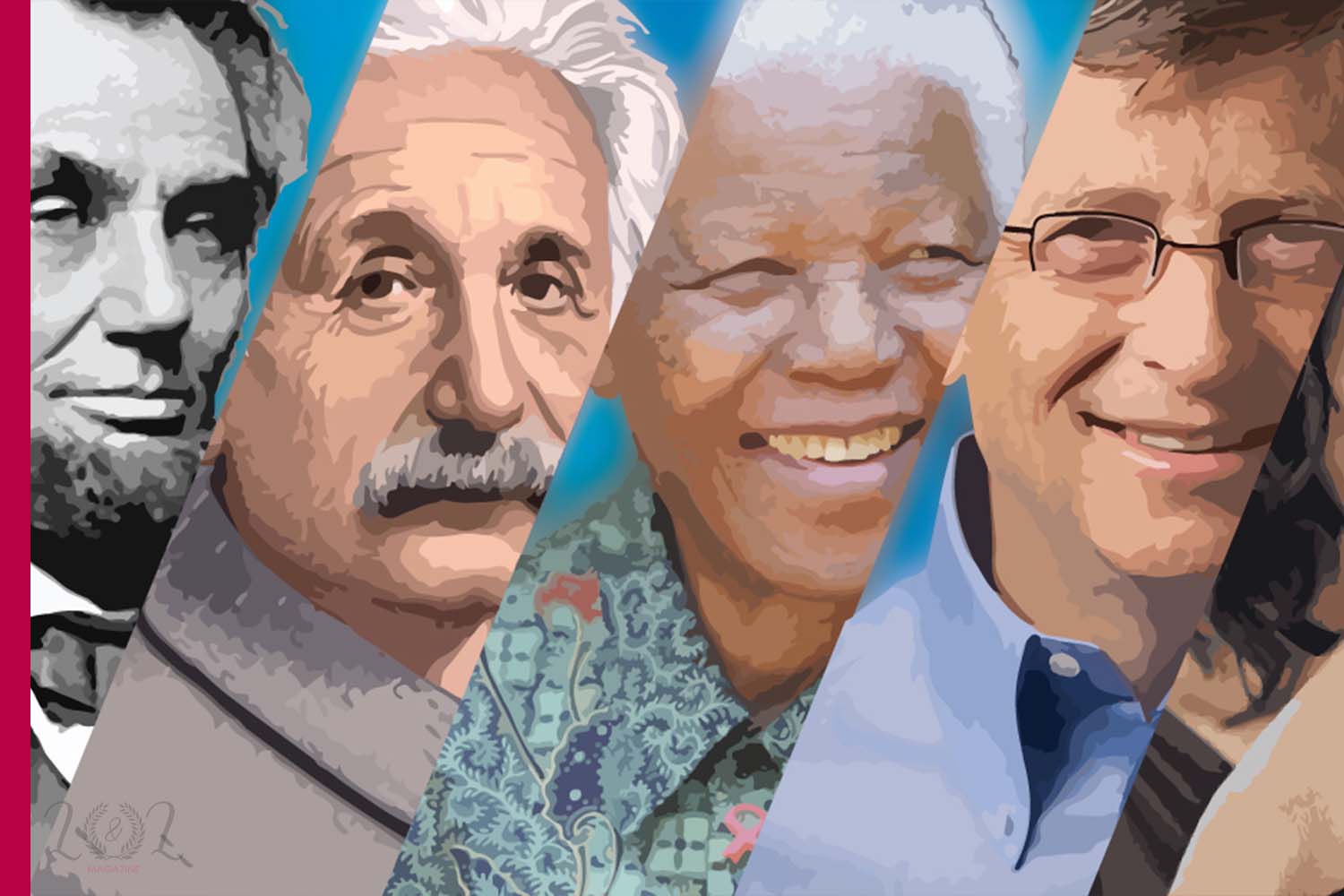Leadership is often associated with power, wealth, and influence. Yet the most inspirational leaders throughout history share a less obvious trait: humility. True leadership is not about domination, titles, or self-glorification it is about serving others, listening, and leading with integrity. Humility allows leaders to connect with people, foster trust, and create lasting impact. From political figures to social reformers, several leaders have shown that greatness is rooted not in ego but in empathy, modesty, and a commitment to purpose beyond oneself. Their lives offer timeless lessons for anyone aspiring to lead with meaning and authenticity.
1. Mahatma Gandhi: The Power of Servant Leadership
Mahatma Gandhi, the architect of India’s independence, embodied humility in its purest form. Despite leading millions in a fight for freedom, he lived a simple life wearing modest clothes, spinning his own cloth, and eating frugally. Gandhi’s humility was not weakness; it was power under control. By prioritizing service over self-interest, he inspired ordinary people to achieve extraordinary change. His philosophy of nonviolent resistance emphasized listening, compassion, and moral courage showing that true leaders lead by example, not authority.
Lesson: Leadership is about serving others, not elevating oneself.
2. Nelson Mandela: Leading Through Forgiveness
Nelson Mandela spent 27 years in prison yet emerged without bitterness. Instead, he embraced reconciliation and nation-building, focusing on uniting South Africa after decades of apartheid. Mandela’s humility allowed him to step aside from personal grievances and place the country’s well-being above ego or vengeance. Mandela’s willingness to forgive and listen earned him respect worldwide. He demonstrated that humility is a cornerstone of moral authority and lasting leadership.
Lesson: Humility empowers leaders to heal divisions and inspire unity.
3. Mother Teresa: Leadership Through Compassion
While not a political or corporate leader, Mother Teresa’s influence is undeniable. She devoted her life to serving the poorest of the poor in Kolkata, India, living among them and embracing the most basic of conditions. Her leadership was grounded in humility she did not seek recognition, wealth, or power. Instead, she led by example, demonstrating that small acts of service and compassion can ripple across the world. Her life teaches that leaders who prioritize others’ needs create the most profound impact.
Lesson: True leadership is measured by service, not accolades.
4. Abraham Lincoln: Leading With Integrity and Empathy
Abraham Lincoln, the 16th President of the United States, navigated one of the country’s most turbulent periods the Civil War. Despite immense pressure, he remained humble and empathetic, listening to advisors, considering dissenting opinions, and acknowledging mistakes. Lincoln’s humility allowed him to connect with people from all walks of life, build consensus, and make difficult decisions with moral clarity. His leadership reminds us that humility strengthens resolve and inspires trust.
Lesson: Humility allows leaders to make fair, ethical, and courageous decisions.
5. Dalai Lama: Leading With Kindness
The 14th Dalai Lama, spiritual leader of Tibet, is revered worldwide not only for his wisdom but also for his humility. Despite his global recognition, he maintains simplicity in daily life, emphasizing compassion, mindfulness, and service. His leadership teaches that authority does not require arrogance. By prioritizing inner values and listening to others, the Dalai Lama has influenced millions, demonstrating that humility can amplify a leader’s voice and reach.
Lesson: Humility creates influence through respect, empathy, and moral example.
6. Leaders in Everyday Life
While historical figures provide inspiration, humility-driven leadership exists in everyday life too. Teachers, community organizers, healthcare workers, and managers who lead quietly yet effectively impact countless lives. A teacher who encourages every student, regardless of background, fosters learning and growth. A doctor who listens to patients attentively creates trust and healing. A community leader who prioritizes collective well-being over personal recognition builds stronger, more cohesive societies. These everyday leaders remind us that humility is not reserved for the famous; it’s a choice anyone can make.
Why Humility Enhances Leadership
Humility may seem counterintuitive in a world that glorifies assertiveness and self-promotion. Yet research and historical examples show that humble leaders:
- Foster Trust and Loyalty – People are more willing to follow leaders who acknowledge their limitations and value others’ contributions.
- Encourage Collaboration – Humility allows for listening, learning, and valuing diverse perspectives.
- Promote Ethical Leadership – Humble leaders prioritize integrity and fairness over personal gain.
- Adapt and Learn – Leaders who accept they don’t have all the answers are more flexible and innovative. In essence, humility strengthens influence, resilience, and long-term impact.
Lessons We Can Apply
The humility of inspirational leaders provides practical lessons for our own lives:
- Listen More, Speak Less – Pay attention to others’ ideas and experiences.
- Serve First, Lead Second – Focus on the needs of your team, community, or society.
- Acknowledge Mistakes – Accept responsibility and learn from errors rather than blaming others.
- Prioritize Purpose Over Ego – Let your vision and values guide actions, not personal ambition.
- Practice Gratitude – Recognize the contributions of others and remain grounded. By integrating these principles, anyone can cultivate leadership that inspires trust, respect, and meaningful impact.
Conclusion: Humility as the True Measure of Leadership
The world often equates leadership with power, influence, and visibility. Yet the most inspirational leaders Mahatma Gandhi, Nelson Mandela, Mother Teresa, Abraham Lincoln, and the Dalai Lama remind us that greatness comes from humility. Humility allows leaders to listen, serve, forgive, and inspire. It fosters resilience, trust, and ethical decision-making. Most importantly, it demonstrates that leadership is not about self-glorification but about lifting others, building communities, and leaving a lasting, positive legacy. In a society often obsessed with titles, wealth, and recognition, these leaders show us a different path: one where modesty and service create true influence. By embracing humility, we can all become leaders in our own spheres impacting lives, inspiring change, and leaving the world better than we found Top of Form
Bottom of Form












